Publications
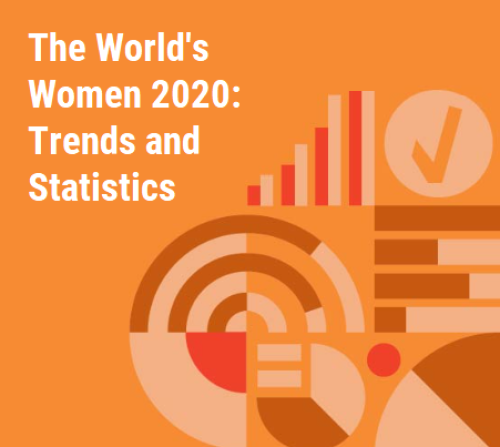
Less than 50% of working-age women are in the labour market, a figure that has barely changed over the last quarter of a century, according to a new UN report launched today. Unpaid domestic and care work falls disproportionately on women, restraining their economic potential as the COVID-19 pandemic additionally affects women’s jobs and livelihoods, the report warns.
The World’s Women 2020: Trends and Statistics compiles 100 data stories that provide a snapshot of the state of gender equality worldwide. Presented on an interactive portal, the report analyses gender equality in six critical areas: population and families; health; education; economic empowerment and…
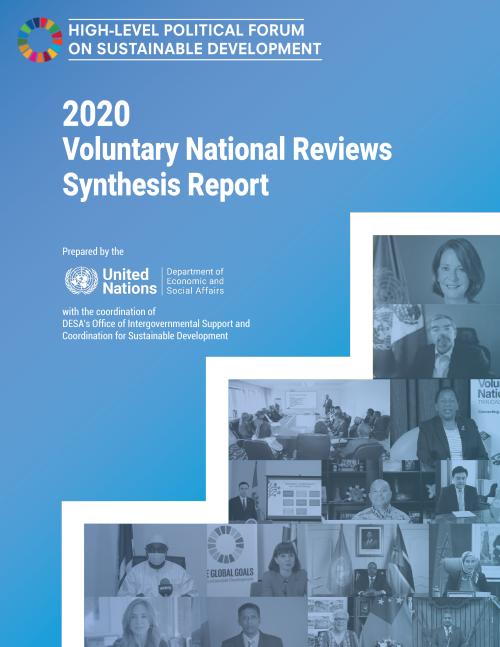
Despite the sudden onset of the COVID-19 pandemic and its global impacts, 47 countries presented their Voluntary National Reviews (VNRs) during the first virtual high-level political forum on sustainable development (HLPF) held under the auspices of the UN Economic and Social Council from 7 to 16 July 2020. Since 2016, when the first reviews were presented, a total of 168 countries have reported on their efforts to implement the 2030 Agenda for Sustainable Development and its Sustainable Development Goals (SDGs). With the launch this year of the Decade of Action and Delivery for sustainable development, some countries reaffirmed their commitment to the principles of the 2030 Agenda and…
The new report examines five megatrends: climate change; demographic shifts, particularly population ageing; urbanization; the emergence of digital technologies; and inequalities –that are affecting economic, social and environmental outcomes. Efforts to reverse or redirect these trends must be reinforced to ensure that we achieve the full measure of the 2030 Agenda, and set the stage for an inclusive, sustainable and equitable future during the next 75 years.
All trends are the result of human activity, and as such, they can be shaped by human decisions and policy choices. By making the right choices today, without further delay, it is not too late to shape the major trends of…
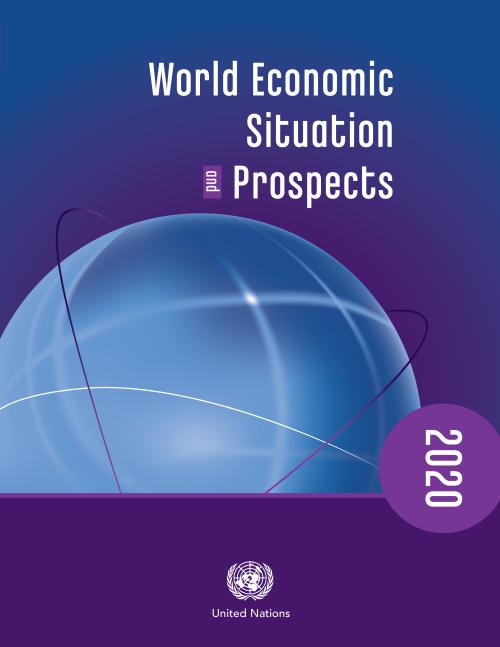
Against the backdrop of a devastating pandemic, the global economy is projected to contract sharply by 3.2 per cent this year, according to the United Nations World Economic Situation and Prospects (WESP) mid-2020 report.
The global economy is expected to lose nearly $8.5 trillion in output over the next two years due to the COVID-19 pandemic, wiping out nearly all gains of the previous four years. The sharp economic contraction, which marks the sharpest contraction since the Great Depression in the 1930s, comes on top of anaemic economic forecasts of only 2.1 percent at the start of the year.
The report estimates that GDP growth in developed economies is expected to…
Impacted by prolonged trade disputes, the global economy suffered its lowest growth in a decade, slipping to 2.3 per cent in 2019. The world, however, could see a slight uptick in economic activity in 2020 if risks are kept at bay, according to the United Nations World Economic Situation and Prospects (WESP) 2020.
The Report states that growth of 2.5 per cent in 2020 is possible, but a flareup of trade tensions, financial turmoil, or an escalation of geopolitical tensions could derail a recovery. In a downside scenario, global growth would slow to just 1.8 per cent this year. A prolonged weakness in global economic activity may cause significant setbacks for sustainable…
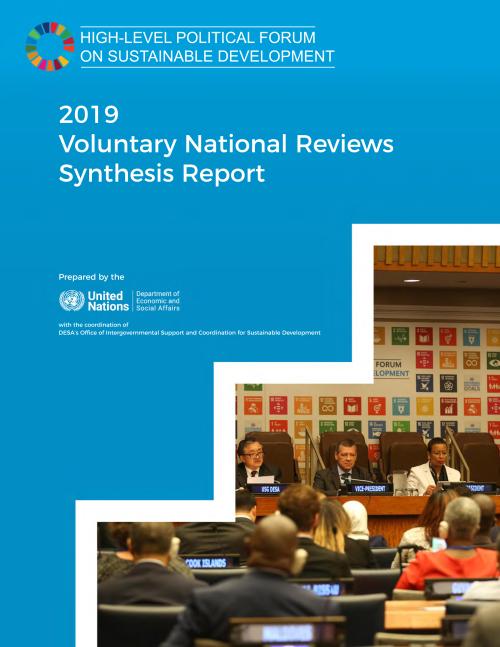
47 countries presented their Voluntary National Reviews (VNR) at the High-level Political Forum on Sustainable Development (HLPF) under the auspices of the UN Economic and Social Council, held in New York from 9 to 18 July 2019. Since 2016, when the first reviews were presented, a total of 142 countries have reported on their efforts to implement the 2030 Agenda for Sustainable Development and its 17 Sustainable Development Goals (SDGs).
As in previous years, this report provides an overview of the approaches and actions taken by all countries reporting in 2019 and showcases best practices, lessons learned, gaps and challenges encountered in working towards the achievement of the…
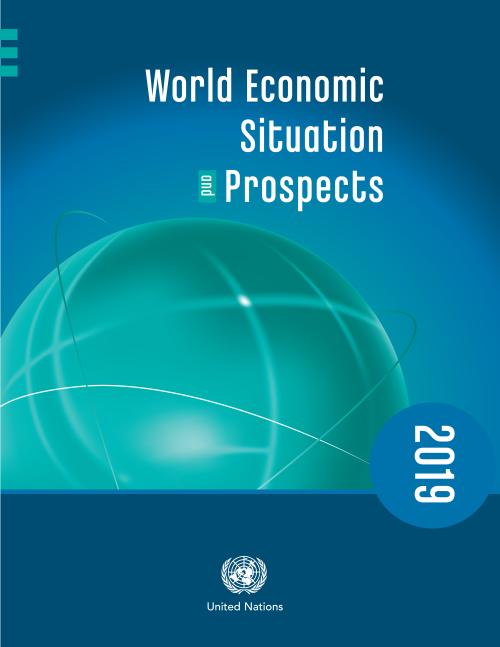
The global economy is experiencing a broad-based growth slowdown amid unresolved trade tensions, high international policy uncertainty, and softening business confidence, according to the United Nations World Economic Situation and Prospects (WESP) mid-2019 report.
The forecast for weaker global growth casts a shadow over efforts to implement the 2030 Agenda for Sustainable Development, which has set universal goals for eliminating poverty, promoting prosperity and social well-being while protecting the environment. Weaker economic growth puts at risk essential investments in areas such as education, health, climate change adaptation and sustainable infrastructure.
…
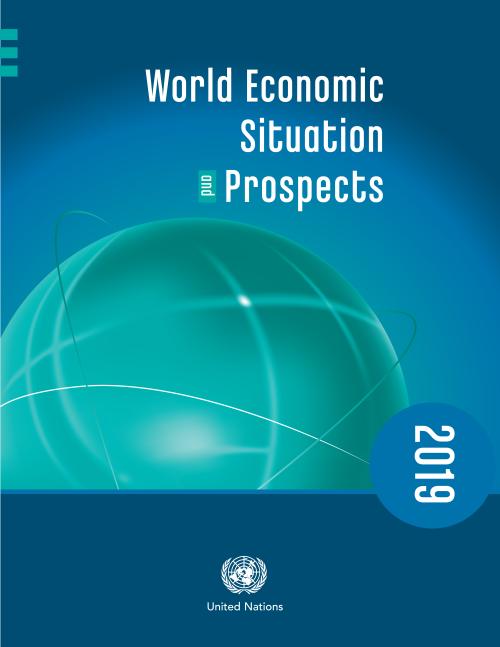
The global economy will continue to grow at a steady pace of around 3 per cent in 2019 and 2020 amid signs that global growth has peaked. However, a worrisome combination of development challenges could further undermine growth, according to the United Nations World Economic Situation and Prospects (WESP) 2019.
UN Secretary-General António Guterres cautioned “While global economic indicators remain largely favourable, they do not tell the whole story.” He said the World Economic Situation and Prospects 2019 “raises concerns over the sustainability of global economic growth in the face of rising financial, social and environmental challenges.”
Global growth is expected to…
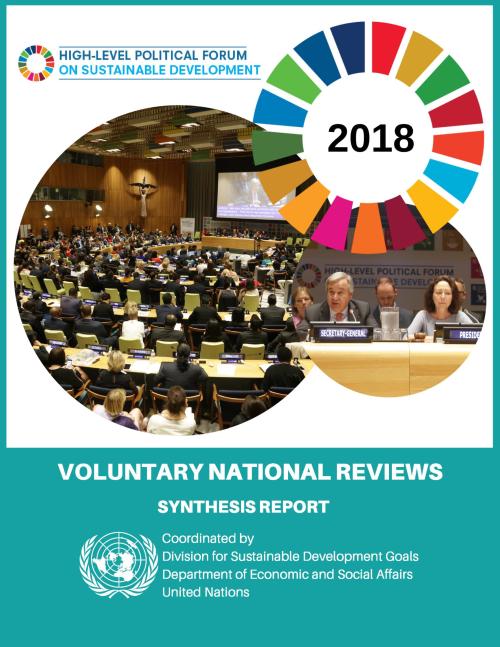
The 2018 High-Level Political Forum (HLPF) on sustainable development took place from 9 to 18 July. A total of 46 countries presented voluntary national reviews, up from 43 countries that conducted reviews in 2017. Since the inaugural reviews in 2016, 111 reviews have been presented, by 102 countries, with a number of countries conducting second reviews. Looking ahead to the 2019 HLPF, it is anticipated that 51 countries will present their national reviews, of which 41 will be doing so for the first time.
The voluntary national reviews document how countries are tackling the transformative challenge of the 2030 Agenda. The reviews are country-specific and complement the broader…
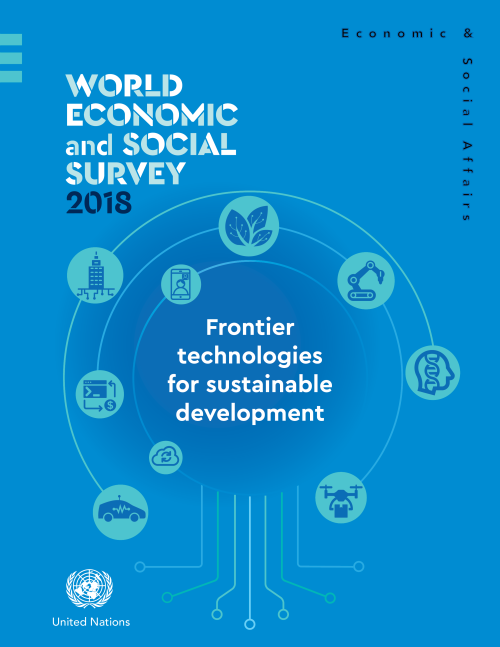
New frontier technologies — everything from renewable energy technologies to biodegradable plastics, artificial intelligence and electric vehicles — hold immense potential to improve people’s lives and significantly accelerate efforts to achieve the Sustainable Development Goals and address climate change. But without appropriate policies, they can also drive greater inequality and increase social dislocations.
The World Economic and Social Survey 2018 produced by UN DESA found that renewable energy technologies and efficient energy storage systems are already enhancing environmental sustainability, allowing countries to “leapfrog” over existing technological solutions. New…
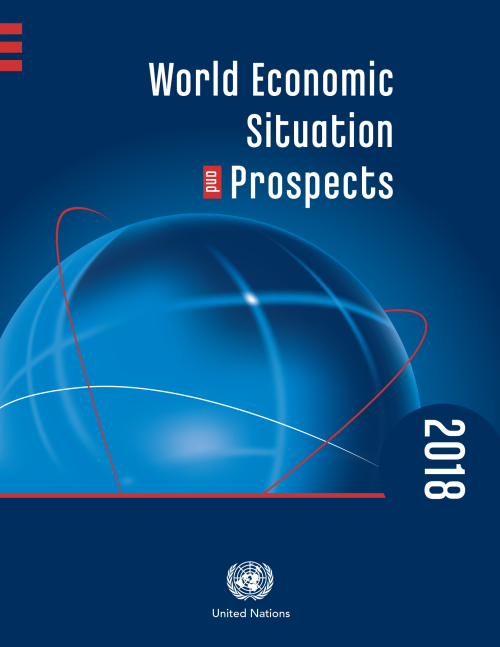
Growth in the world economy is surpassing expectations and global GDP is now expected to expand by more than three per cent this year and in 2019, reflecting strong growth in developed countries and broadly favourable investment conditions. But rising trade tensions, heightened uncertainty over monetary policy, increasing debt levels and greater geopolitical tensions can potentially thwart progress, according to the United Nations World Economic Situation and Prospects (WESP) as of mid-2018.
According to the report, world economic growth is now forecast to reach 3.2 per cent both in 2018 and 2019, an upward revision by 0.2 and 0.1 percentage point, respectively. This revised…
–An upturn in the global economy—now growing by about 3 per cent—paves the way to reorient policy towards longer-term issues such as addressing climate change, tackling existing inequalities and removing institutional obstacles to development, according to the United Nations World Economic Situation and Prospects (WESP) 2018.
“The World Economic Situation and Prospects 2018 demonstrates that current macroeconomic conditions offer policy-makers greater scope to address some of the deep-rooted issues that continue to hamper progress towards the Sustainable Development Goals,” stated UN Secretary-General António Guterres in the Foreword.
According to the report, in 2017, world…
 Welcome to the United Nations
Welcome to the United Nations